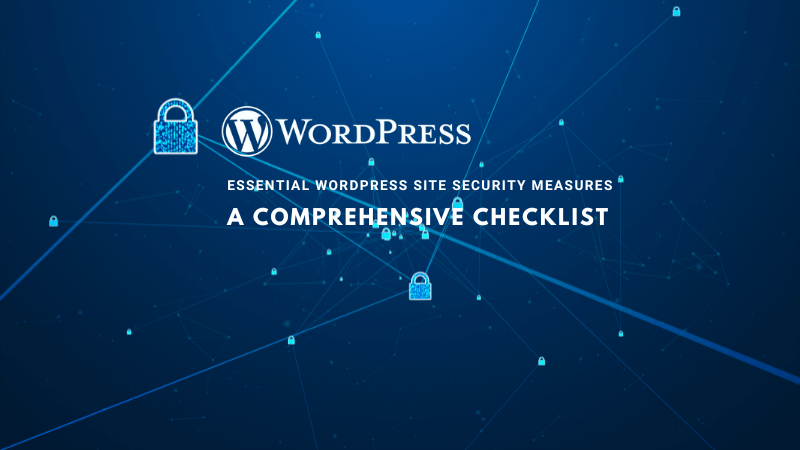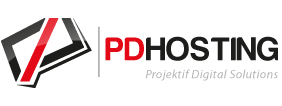
In an age where online security challenges are ever-present, ensuring the safety of your WordPress website is paramount. Cyber threats continue to grow in complexity, and a single vulnerability can expose your site to potential risks. As a responsible web hosting provider, PD Hosting is dedicated to arming our users with the knowledge and resources needed to tackle these challenges head-on.
Protecting your online presence goes beyond installing a few plugins; it requires a holistic understanding of potential attack vectors and proactive defense strategies. In this comprehensive checklist, we provide a detailed guide to essential security measures, helping you shield your WordPress site from threats and vulnerabilities.
Estimated reading time: 7 minutes
Table of contents
- Keep Your WordPress Core, Themes, and Plugins Up to Date
- Use Strong and Unique Login Credentials
- Choose Reliable Web Hosting
- Install a WordPress Security Plugin
- Enable SSL/TLS Encryption
- Implement Regular Backups
- Limit Login Attempts
- Restrict User Access and Privileges
- Regularly Review User Accounts
- Avoid Using “Admin” as a Username
- Disable Directory Listing
- Implement a Web Application Firewall (WAF)
- Disable XML-RPC if Not Needed
- Hide Your WordPress Version
- Set Up Email Notifications for Critical Activities
- Use a Content Delivery Network (CDN)
- Avoid Downloading Premium Plugins and Themes for Free
- Implement Geoblocking
- Regularly Scan for Malware
- Protect the wp-config.php File
- Educate Your Team
- Implement Website Hardening
- Conclusion
- FAQs
Keep Your WordPress Core, Themes, and Plugins Up to Date
Regularly updating your WordPress core, themes, and plugins is crucial for maintaining a secure website. These updates often include security patches that address known vulnerabilities and protect your site from potential exploits. At PD Hosting, we understand the importance of staying up to date and provide automatic update options for your convenience.
Use Strong and Unique Login Credentials
Strengthening your login credentials is an effective way to fortify your WordPress site’s security. Create unique usernames and strong passwords that combine uppercase and lowercase letters, numbers, and special characters. Additionally, consider implementing two-factor authentication (2FA) for an extra layer of protection.
Choose Reliable Web Hosting
Selecting a reliable web hosting provider, like PD Hosting, is a crucial aspect of securing your WordPress site. Look for hosting providers that offer robust security measures, such as regular backups, firewalls, malware scanning, and DDoS protection. These features ensure that your website remains safe and accessible to your visitors. If you’re searching for top-notch WordPress hosting services, consider exploring PD Hosting’s WordPress hosting plans for comprehensive security and reliable performance.
Install a WordPress Security Plugin
WordPress security plugins are invaluable tools that can enhance your website’s protection. Consider installing a reputable security plugin that offers features like malware scanning, firewall protection, and brute force attack prevention.
Enable SSL/TLS Encryption
Implementing SSL/TLS encryption on your WordPress site is crucial for securing sensitive data transmitted between your visitors’ browsers and your server. SSL/TLS certificates encrypt data, making it difficult for malicious actors to intercept and exploit. PD Hosting offers free SSL/TLS certificates, ensuring a secure browsing experience for your visitors.
Implement Regular Backups
No matter how secure your website is, there’s always a possibility of things going wrong. This is where regular backups come into play. By backing up your website regularly, you ensure that you have a safe copy of your content and data that can be restored in case of any mishaps. PD Hosting provides automated backup solutions that store multiple versions of your website, so you can roll back to a previous state if needed.
Limit Login Attempts
Brute force attacks are one of the most common threats to WordPress sites. By limiting the number of login attempts from a single IP address, you can significantly reduce the risk of unauthorized access. There are plugins available that can help you set up this restriction easily.
Restrict User Access and Privileges
When multiple individuals have access to your WordPress dashboard, it’s crucial to assign appropriate user roles and privileges. WordPress comes with various user roles like Administrator, Editor, Author, Contributor, and Subscriber. Ensure that you provide only the necessary access levels based on the tasks a user needs to perform. For instance, not every user needs to have administrator privileges. By limiting access, you can minimize potential damage in case of any inadvertent mistakes or intentional misuse. At PD Hosting, we advocate for a principle of least privilege to enhance site security.
Regularly Review User Accounts
Periodically review all user accounts on your WordPress site. Delete any unused or suspicious accounts, especially those with administrative privileges. This helps in minimizing potential backdoors for unauthorized access.
Avoid Using “Admin” as a Username
The default “admin” username is often targeted by brute force attacks. If you’re still using “admin” as your primary administrative username, consider creating a new admin user with a different name and deleting or demoting the old “admin” user.
Disable Directory Listing
By default, if your web server doesn’t find an index file (like index.php or index.html), it will display a directory listing of all the files and folders in that directory. This can expose sensitive data. Ensure that directory listing is disabled on your web server to add an extra layer of privacy to your site.
Implement a Web Application Firewall (WAF)
A Web Application Firewall (WAF) acts as a shield between your website and incoming traffic. It filters and monitors HTTP traffic, blocking malicious requests and protecting your site from various online threats. PD Hosting offers a robust WAF solution that integrates seamlessly with your WordPress site, ensuring maximum security.
Disable XML-RPC if Not Needed
XML-RPC is a feature that allows remote connections to WordPress. While it can be useful for certain applications like connecting your site to mobile apps, it can also be exploited by hackers. If you don’t actively use XML-RPC, it’s recommended to disable it to reduce the potential attack surface.
Hide Your WordPress Version
Displaying your WordPress version can make your site a target if you’re running an older, vulnerable version. To prevent potential attacks, it’s advisable to hide your WordPress version. This can be achieved using various plugins or by making minor tweaks to your theme’s functions.php file.
Set Up Email Notifications for Critical Activities
Receiving real-time notifications for critical website activities, such as administrator logins or changes to core files, can help you stay on top of your site’s security. There are plugins available that can set up these email alerts, ensuring you’re immediately informed of important events.
Use a Content Delivery Network (CDN)
A Content Delivery Network can not only improve your site’s speed and performance but also enhance its security. CDNs can help protect against DDoS attacks and traffic spikes, ensuring your site remains accessible and performs optimally.
Avoid Downloading Premium Plugins and Themes for Free
While it might be tempting to get premium plugins or themes without paying, these “free” versions often come with malicious code. It’s always recommended to download plugins and themes from reputable sources, preferably directly from the developers or official WordPress repository.
Implement Geoblocking
If your website caters primarily to a specific geographical location, consider implementing geoblocking. By restricting access to specific regions, you can reduce unwanted traffic and potential threats from areas that aren’t relevant to your audience.
Regularly Scan for Malware
Periodic malware scans are essential to detect and remove any malicious code that might have infiltrated your website. While security plugins often come with scanning features, consider using dedicated malware scanning tools for a more thorough check.
Protect the wp-config.php File
The wp-config.php file is one of the most critical files in your WordPress installation, containing sensitive information like database credentials. Ensuring this file’s security can significantly reduce the risk of your website getting compromised. You can do this by moving it one directory above the WordPress installation or setting appropriate file permissions.
Educate Your Team
If you have multiple people managing or contributing to your WordPress site, ensure they are educated about basic security practices. This includes using strong passwords, recognizing phishing attempts, and understanding the importance of regular updates.
Implement Website Hardening
Website hardening involves taking extra measures to lock down specific parts of your WordPress site. This includes actions like disabling file editing from the dashboard, protecting the .htaccess file, and setting correct file permissions.
Conclusion
Every website, regardless of its size, faces potential cyber threats. With the increasing sophistication of these threats, adopting a proactive approach to website security is more crucial than ever. By implementing the measures discussed and maintaining regular monitoring and updates, you can significantly enhance the security of your WordPress site. While no site can be entirely invulnerable, each security measure you incorporate substantially diminishes potential risks. Staying updated, vigilant, and prioritizing security is not a one-time task but an ongoing commitment. At PD Hosting, we are unwavering in our dedication to support you in ensuring a secure and reliable online presence.
FAQs
Regular updates include security patches that address known vulnerabilities, reducing the risk of exploitation by malicious actors. By keeping your WordPress site up to date, you ensure that your website remains secure and protected.
Two-factor authentication adds an additional layer of security by requiring users to provide a second form of verification, typically through a mobile device or email. This prevents unauthorized access, even if your login credentials are compromised.
A reliable web hosting provider implements robust security measures, such as regular backups, firewalls, and malware scanning, to protect your website from potential threats. Choosing a reputable hosting provider ensures that your site remains safe and accessible to your visitors.
SSL/TLS encryption encrypts data transmitted between your visitors’ browsers and your server, making it difficult for malicious actors to intercept and exploit sensitive information. Implementing SSL/TLS certificates ensures a secure browsing experience for your website visitors.

